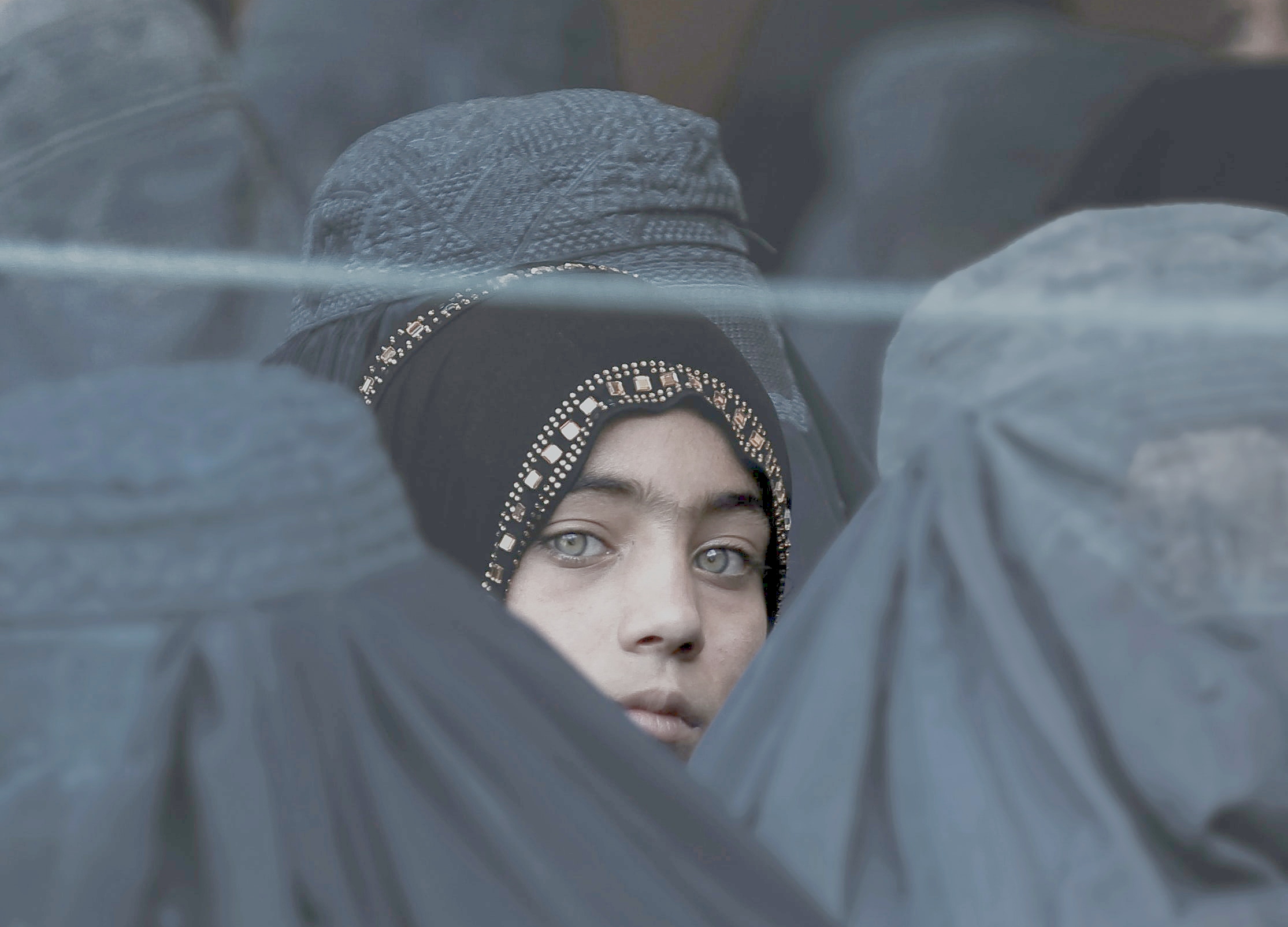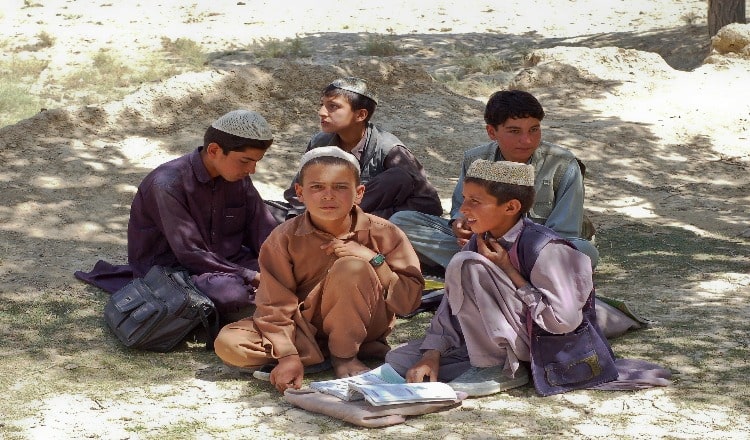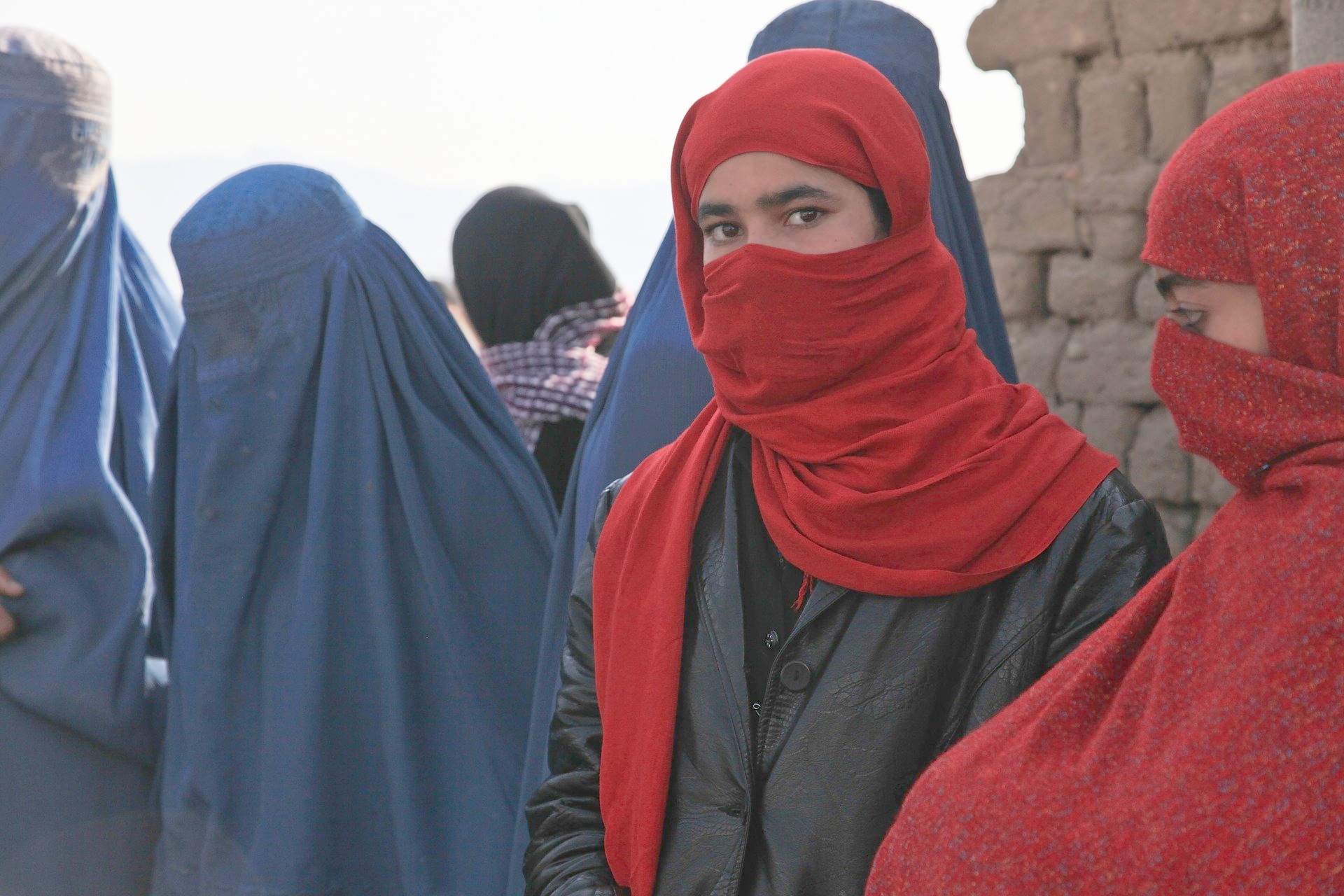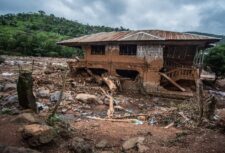On Women’s Equality Day, our CEO Jasmine O’Connor reflects on the impending rise of modern slavery and human trafficking in Afghanistan.

As we watch an extremely difficult situation in Afghanistan unfold, it is critical to understand how a return to Taliban rule could increase incidences of modern slavery, especially for women and girls.
Many development projects funded by many in the West, to advance the rights of women in Afghanistan, have undoubtedly delivered some rights to a generation of Afghan women and girls. Now, as we know, any progress made is likely to be wiped out as women and girls face the reality of a return to Taliban rule.
Progress had been made with laws to protect women’s rights and advances in girls’ education, women in the workplace and, notably, in Government, but we shouldn’t forget that even before the fall of Kabul to the Taliban, Afghanistan remained one of the worst places to be a woman.
Despite better laws, school infrastructure, a Ministry of Women’s Affairs and women in the judiciary, the foundations of discrimination against women have not been uprooted. The collectively held belief about what men and women typically do and what is expected or appropriate for others to do, enforced by the group’s social approval or disapproval, determines what happens. As in other countries, in Afghanistan those norms are often rooted in patriarchy and traditional values which vary between regions and rural and urban locations. Changes in knowledge, individual attitudes and even laws have not been enough to turn the tide on the traditional norms which dictated women’s place in society.
Sadly, this is also the case when it comes to slavery. In July 2021 the U.S. Department of State rated Afghanistan as Tier 3 of its Trafficking in Persons Report (TIP). This means that it did not meet the minimum standards for combatting human trafficking and slavery, and worse still, the Government was apparently not trying to change this.
As in the case with gender equality, laws against slavery so exist. The 2018 Criminal Code outlaws the use of child soldiers, labour trafficking and sex trafficking, as well as bacha bazi, a deeply embedded tribal practice which involves rich men forcing poorer boys to dress as women and dance seductively, often leading to their sexual abuse. But the laws against these forms of slavery were relatively new, and the judiciary was new and no match for prevailing norms.

The 2020 TIP Report found the practice of bacha bazi in government compounds as well as the recruitment and use of child soldiers. Although there have been some notable cases with officials engaging in these practices being charged, many cases involving high-level officials have not even been investigated. No military and police officials have been held accountable for the use of child soldiers. Even when female sex trafficking victims were able to access formal justice, sometimes officers penalised them for ‘moral crimes’ such as sex outside of marriage.
The embedded gender and strict tribal norms in parts of Afghan society make tackling the scourge of many types of slavery an uphill struggle.
Now, as the Taliban seek to exert their rule, women and girls rightly fear the future and the loss of any progress made over the last 20 years. Even before Kabul fell there were reports of the Taliban doubling down on the practice of forcing women and girls into marriage and sexual slavery to lure militants to join them. The future for Afghan women and girls looks bleak.
It will take time to understand how slavery practices will develop and be dealt with under the Taliban, but their indoctrination and recruitment of young boys to become soldiers will likely continue. Increased migration, as people seek to flee Taliban rule is also likely to create opportunities for traffickers.
There will be many lessons to learn from Afghanistan, but the importance of changing norms is one that has application across the field of human rights and anti-slavery work, with no country immune from harmful norms and practices that limit people’s freedom
In a 20-year period it is possible to change some laws, build some infrastructure and begin a journey of changing social norms. But the harmful norms that often underpin both practices of slavery and gender inequality, can take generations to change in any context. A cursory glance at the UK reveals that, over 100 years after women got the vote, negative norms about a woman’s role in society.
Whilst in the 1700s it was considered acceptable in the UK to own a slave; today, if you confessed to owning a slave, your friends would be horrified. Nevertheless, the racist social norms which fuelled the transatlantic slave trade still endure in some groups, and everyday racism goes unchallenged.
People conform to group expectations out of the human need for social approval and belonging. Freedom for everyone requires shifting social norms. It requires engaging with people we don’t agree with and building broad based movement, momentum and belonging around new social norms and values. This is the role of anti-slavery campaigners wherever they are in the world. It is a tough job, with an emotional toll, requiring us all to get out of our echo chambers and communicate with people who don’t look, or think like us. It requires patience and a belief that the status quo can be changed, albeit slowly. It demands resilience and a gritty refusal to give into despair. And it always requires local leadership.

It is this patience and resilience that we at Anti-Slavery see every day in the work of our partners. Whether working to change social norms around the long-held practices of descent-based slavery and forced child begging in Africa or working to shift the norms around the commercial sexual exploitation of children or the bonded labour of Dalits in Asia, our partners know they are in it for the long haul. And it is this patience and resilience that women’s rights defenders in Afghanistan embody.
As the events there unfold, we join with other human rights organisations to call upon our government, and others around the world, to do everything possible to evacuate and welcome those fleeing from reprisals, forced marriage, and other atrocities. It is now seemingly impossible to imagine how human trafficking and the oppression of women will ever end in Afghanistan. There are no simple answers. Yes, there are still some limited diplomatic and economic levers the West can pull, and we must rise to the huge humanitarian challenge and develop safe passage for refugees after the final withdrawal.
I can only dare to hope that, as the last allied forces plane leaves, as it so dreadfully will, that those women, now living under Taliban rule, somehow refuse to give in to despair. That instead they will find resilience, like the women who took to the streets of Kabul to protest against the Taliban last Tuesday and be bolstered by our allyship.
This Women’s Equality Day, it is these astounding women I will honour.





